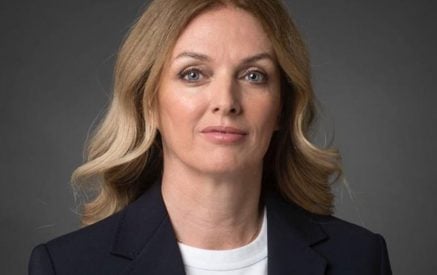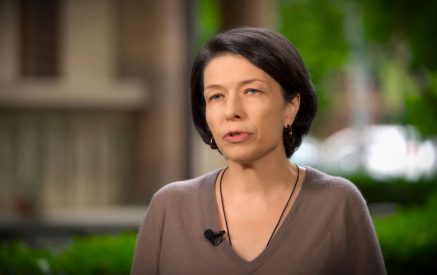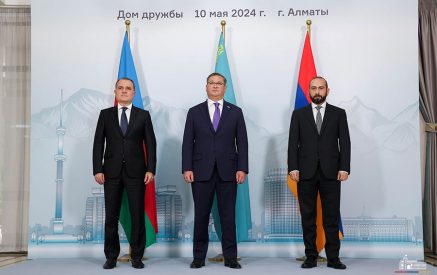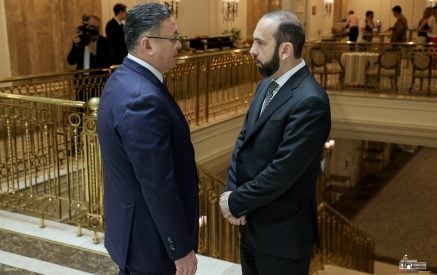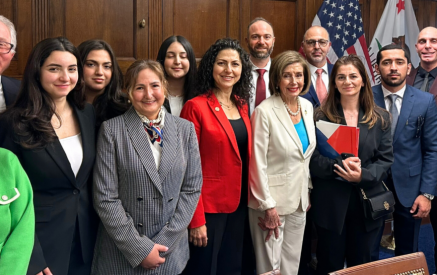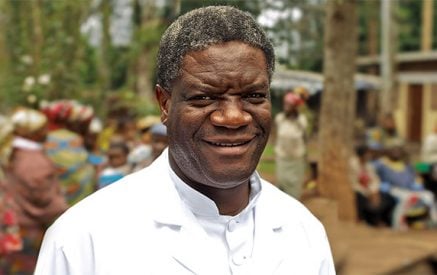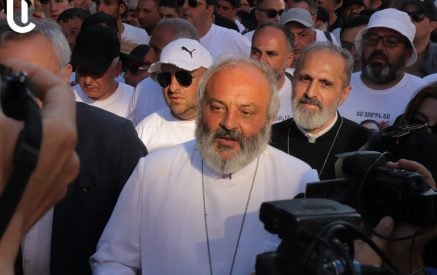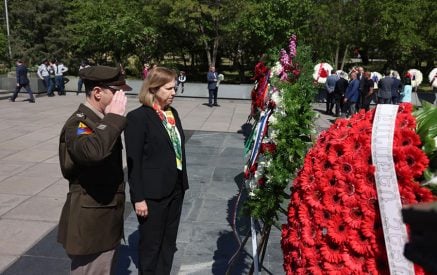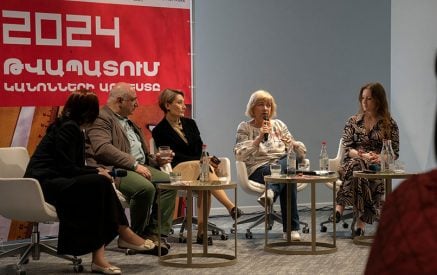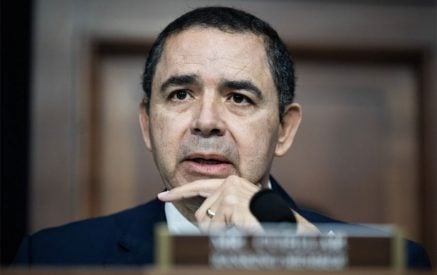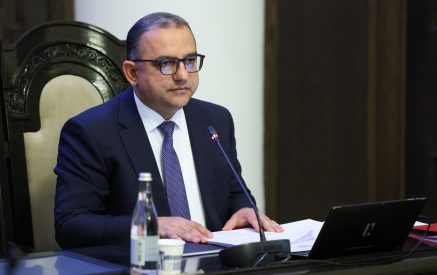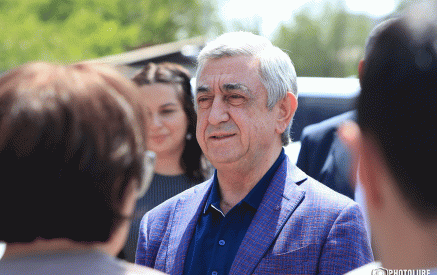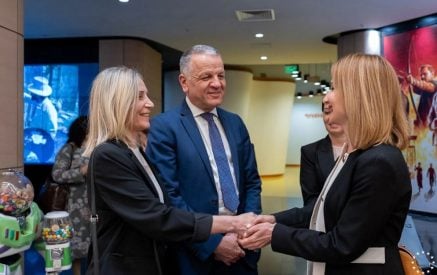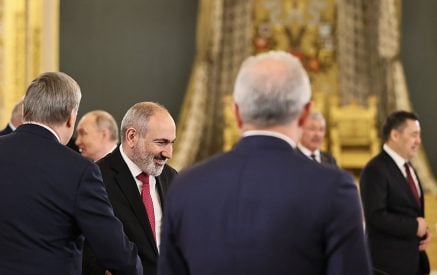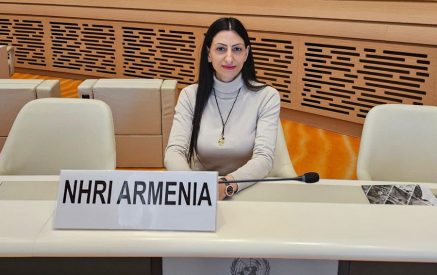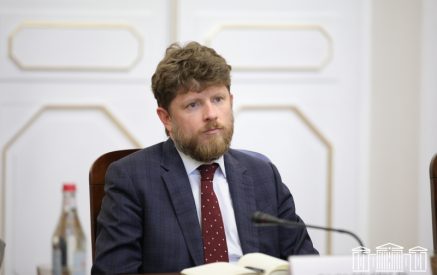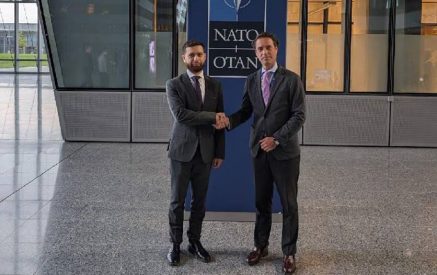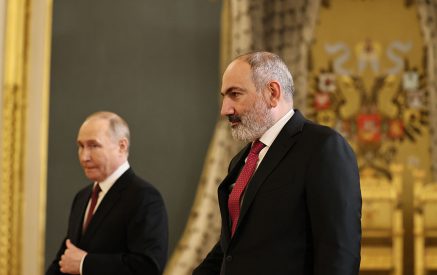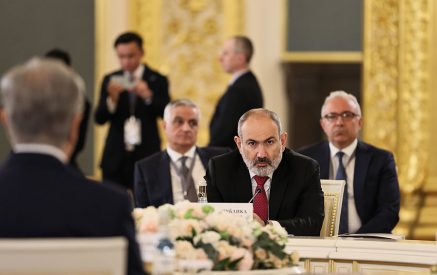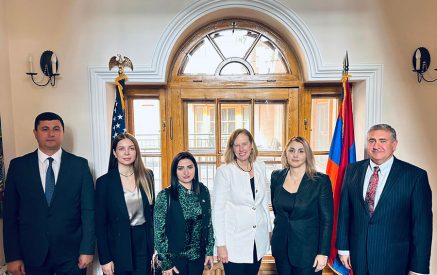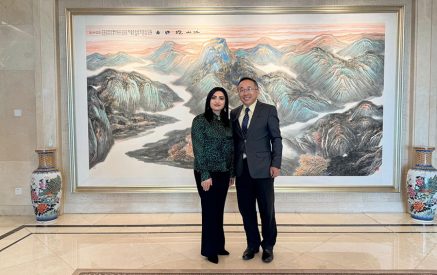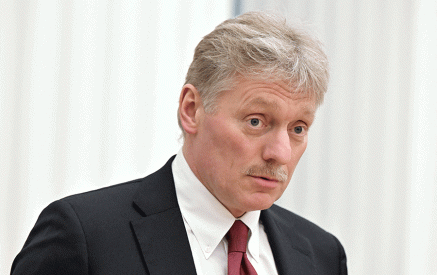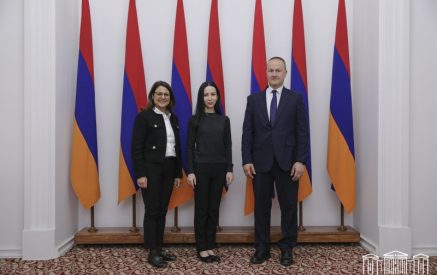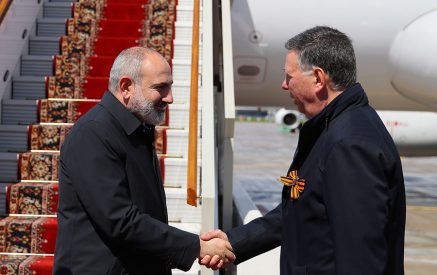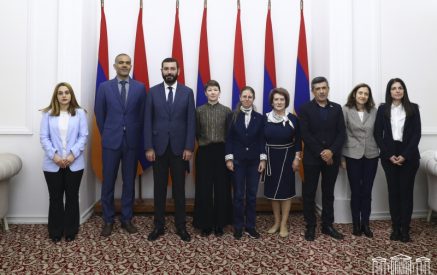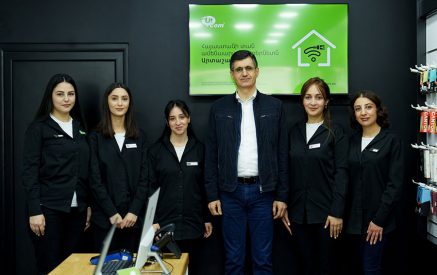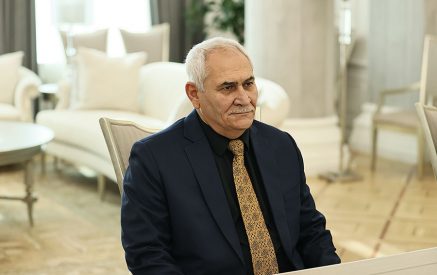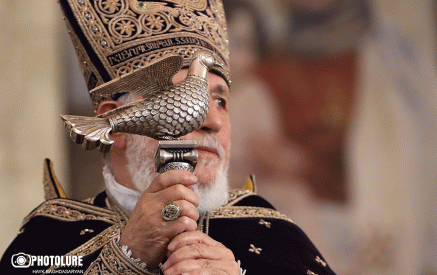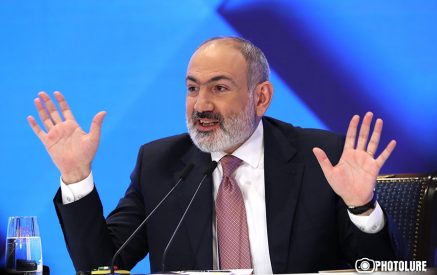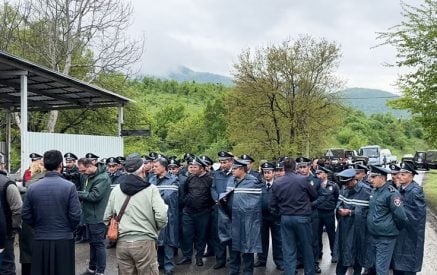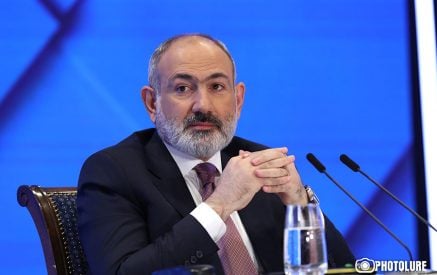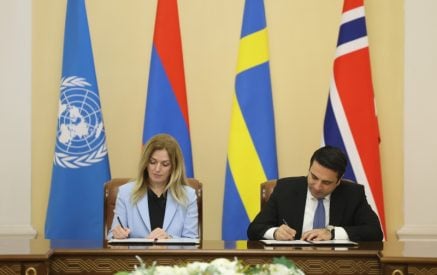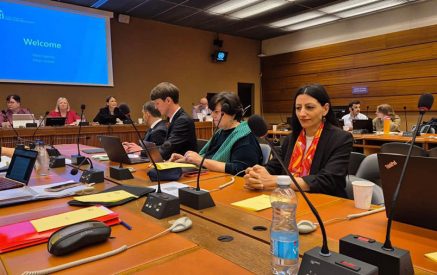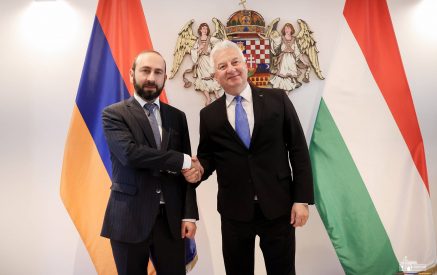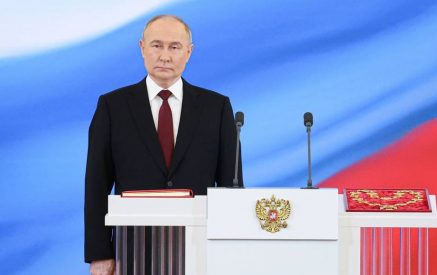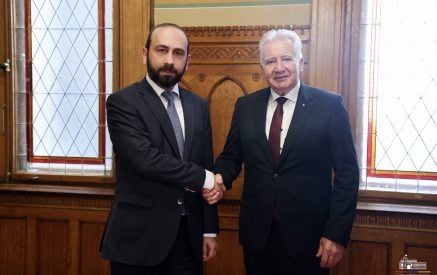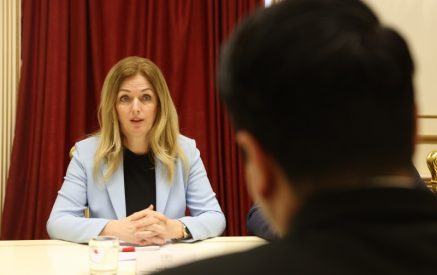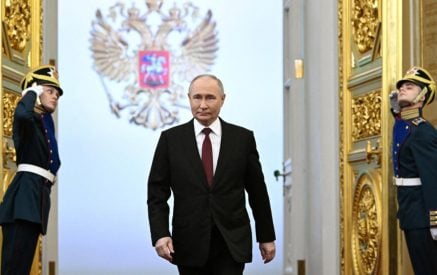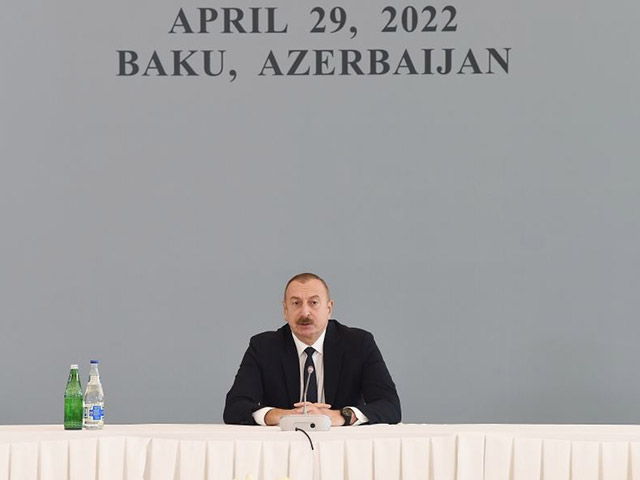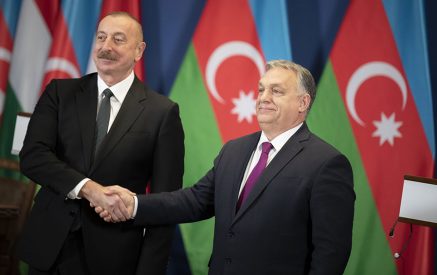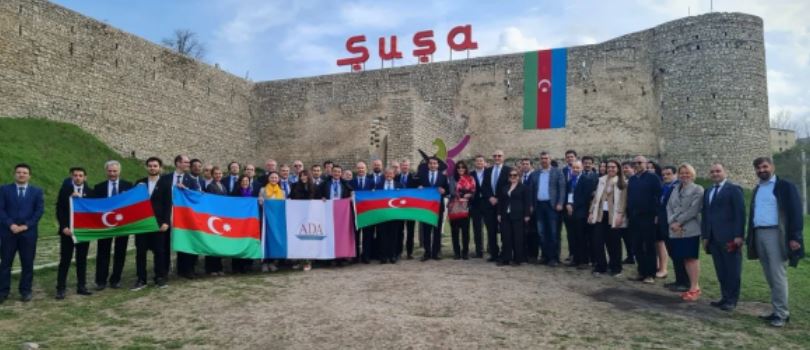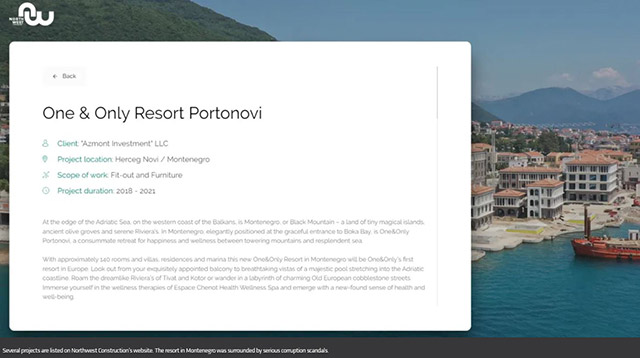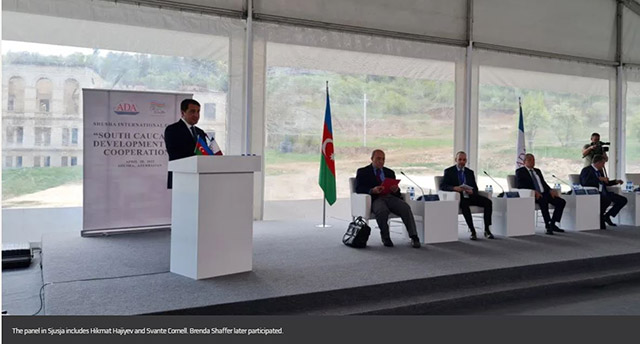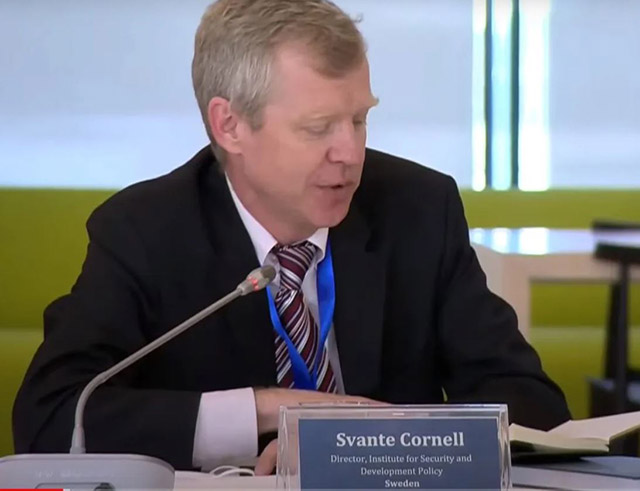by Blankspot
The Swedish Ministry of Foreign Affairs annually gives SEK 6 to 10 million to the Swedish research institute ISDP, despite its links to the dictatorship of Azerbaijan. Blankspot can now reveal that the Ministry of Foreign Affairs has for many years been aware of the relationship between the research institute’s rector Svante Cornell and the Azerbaijani regime. “I do not understand how it can happen in this way, it should be a scandal,” says Member of Parliament Fredrik Malm (L).
This is a translated text from the original article in Swedish. Some of the quotes have first been translated into Swedish from English, and then translated back again. For every quote there is a link referring to its original source. The text is primarily written for a Swedish audience.
– Thank you very much dear Mr. President. First of all, let me congratulate you and the people of Azerbaijan on the restoration of Azerbaijan’s territorial integrity. It is clear that this historic achievement has changed the politics of the Caucasus region and far beyond. Most importantly I think it has shown to the world the capabilities of Azerbaijan and the resolve of the Azerbaijan statehood.
Read also
These words were addressed to Azerbaijan’s authoritarian leader Ilham Aliyev by Svante Cornell, the rector and co-founder of the Institute for Security and Development Policy (ISDP), during an online seminar in April 2021, just six months after Azerbaijan’s military victory in Nagorno-Karabakh.
In a new report, the human rights body Freedom House described the invasion of Nagorno-Karabakh as an inspiration for how authoritarian regimes can strengthen their power with the help of war:
Aliyev’s clear success in using military aggression to strengthen his regime may have contributed to Vladimir Putin’s decision to invade Ukraine. Putin himself has utilized such tools several times in the past, and now there was reason to believe that it would work again.
At the same time, Azerbaijan is considered one of the world’s most repressive regimes. The country is blacklisted by Reporters Without Borders, has major challenges with human rights issues according to Human Rights Watch and is ranked 141th out of 167 in the Economists’ Democracy Index.
The war ended after 44 days with Armenia, Azerbaijan and Russia signing a ceasefire agreement. Russia was given a five-year responsibility by Armenia and Azerbaijan to monitor the ceasefire using about 2,000 peacekeepers. The Armenians in Nagorno-Karabakh lost about 2/3 of the territorial they control, and the ceasefire has been broken several times since by the Azerbaijani side.
So how is it that the ISDP research institute, located in Nacka outside Stockholm, pays tribute to the dictator and congratulates him on his victory – and that the Swedish Ministry of Foreign Affairs is the largest financier of said organization, contributing between SEK 6-10 million annually?
Svante Cornell has published a large number of articles and books about the region, and often appears in both academia and the public sphere on issues affecting Turkey, the Caucasus and Central Asia.
Contacts between the ISDP and the government in Azerbaijan have also been close over the years. The last contact took place during the Valborg weekend in 2022 when Svante Cornell was at a conference funded by the Azerbaijani state in the parts of Nagorno-Karabakh that Azerbaijan has controlled since 2020. The conference was organized by the state university ADA and the research institute AirCenter, which was founded by a presidential decree by Ilham Aliyev.
The Ministry for Foreign Affairs informs Blankspot that ISDP received a grant of SEK 6.5 million for 2021. Among other financiers is an Azerbaijani construction company with links to the Aliyev family.
This is not the first time that contacts between the ISDP and Azerbaijan have received attention. As early as 2017, Dagens Nyheter was able to reveal Svante Cornell’s connections. However, these revelations did not lead to action, and since then nothing has changed. The Ministry of Foreign Affairs still funds the institute, and Svante Cornell still has connections to Azerbaijan.
But the question is: how deep have Cornell’s contacts with Azerbaijan been? What do they mean? And can there be professional reasons to have relations with dictatorships?
One of Svante Cornell’s first writings about Azerbaijan is from 1998. In the journal Middle Eastern Studies, he writes ”Despite the fact that the country has been subjected to aggression, Azerbaijan receives only little support, either real or verbal, from the outside world.”
The quote is frequently used by Azerbaijani academics to illustrate a perceived injustice.
Two years later, in 2000, Cornell published on his own website http://www.cornellcaspian.com that he is participating in an Azerbaijani state-funded project. The website remains, but the pages about his stays in Azerbaijan have been removed. However, they can be found on the Way Back Machine.
The project focused on highlighting the new oil pipeline from Azerbaijan to Turkey. Svante rode a motorcycle from Baku to Turkey with the first oil delivery. The project was funded by the Azerbaijani state-owned telecommunications company Azercell. The pictures on the website show that before the trip he hung out with the former president, Heydar Aliyev (Ilham’s father), and participated in a media gathering organized by the state oil company SOCAR in Azerbaijan.
Azercell was later bought by TeliaSonera, and was one of the main players in the corruption-ridden Telia scandal of 2011-2012. Aftonbladet wrote in 2012 that ISDP was instrumental in the establishment of TeliaSonera in Central Asia, and Azerbaijan.
The same article from Aftonbladet states that Svante Cornell was hand-picked by the then Foreign Minister, Carl Bildt (M), to be part of a special security council for the government.
Cornell’s motorcycle trip took place over 20 years ago, but the events should nevertheless be read as relevant history for this review. The trip is one of many pieces of the puzzle as to why Cornell has since published a number of excusing texts about Azerbaijan.
Among other things, Cornell released the book ”Azerbaijan Since Independence” in 2011, which was criticized by several actors for taking a stridently pro-Azerbaijani position. Among others, the editor Joshua Kucera, who writes on Caucasus issues for the respected online magazine Eurasianet, noted that while the book is possibly worth reading, it has a ”generally pretty pro-Azerbaijan, and his framing of the situation… seems to absolve Azerbaijan of any responsibility for its actions…”
The book was previously distributed by the Azerbaijani Embassy in Stockholm in formal contexts as a reading for ”a guide to Azerbaijan”.
In 2012, in connection with Azerbaijan organizing the Eurovision Song Contest, Svante Cornell called Ilham Aliyev’s rule ”by no means dictatorial”.
It so happened that at the same time, Aliyev’s regime was in the process of dismantling civil society. Crowds of journalists and activists were imprisoned, tortured or exiled. The following year, a final election result of the presidential election was declared prior to the voting had even finished. It goes without saying that Ilham Aliyev won overwhelming.
Since then, Cornell has served on the advisory editorial board of the Azerbaijani think tank Caucasus Institute, which is run by the Aliyev regime, and remains in that position despite Nyheter having brought attention to it in 2017. The chairman of the advisory panel is the former Azerbaijani diplomat Farid Shafijev, who is the rector of AirCenter, a co-organizer of the conference during the Walpurgis weekend.
Since the war in 2020, Cornell has met Ilham Aliyev on two occasions, one of those being where the opening quote to this article was said, a conference to which researchers from around the world were invited. In contrast to Cornell’s speech at the conference, a Dutch researcher used the opportunity to pose a critical question to Aliyev about the dismantling of civil society, and did not preface it by praising Aliyev.
The second time Cornell met Aliyev was during the Walpurgis weekend, this time on location in Azerbaijan instead of remotely. During a three-hour question and answer period, the video of the event shows Aliyev answering uncritical questions posed to him and is occasionally met with applause. The atmosphere is upbeat and good, and Aliyev is given plenty of space to explain his views on the benefits of war.
The conference was also attended by the American energy researcher Brenda Shaffer, who was recognized by the anti-corruption organization OCCRP for her corrupt dealings with Azerbaijan. She participated on the same panel as Cornell, one which also included Ilham Aliyev’s Foreign Affairs Adviser Hikmet Hajiyev.
Like Cornell, Shaffer sits on the Caucasus Institute’s advisory panel.
The conference partially took place in the city of Shusha*, which is part of Nagorno-Karabakh that Azerbaijan took control of after the 2020 war.
This is an important detail as presence there can be perceived as taking a stance in the conflict over Nagorno-Karabakh. The issue aroused controversy in the summer of 2021 when the embassies and diplomatic missions in Azerbaijan were invited to Shusha.
At that time, the ambassadors of France, Russia and the United States chose not to participate , referring to the fact that they represent the chairmen of the Minsk Group. They believed that a trip to Nagorno-Karabakh could damage the peace process with Armenia, which provoked criticism from Azerbaijan, where several politicians considered that the co-chairmen should be criticized for not taking an Azerbaijani side.
The public rhetoric in Azerbaijan is that the war in Nagorno-Karabakh has been resolved, and in a way which was not supported by the co-chairmen of the Minsk Group.
Azerbaijani political adviser Eldar Mamedov, who works for the Social Democrats in the European Parliament, writes in an analysis for Eurasianet that anyone invited to conferences in Shusha to meet with Ilham Aliyev has been approved by the Azerbaijani government.
[The idea that attendees at the conferences in Shusha are allowed to speak freely] is of course disingenuous, as anyone who understands Azerbaijan knows. Speech is not free in the country. And at a state-run event, all the more so with the president present, any invitee has the tacit approval of the government.
After his visit to Nagorno-Karabakh, Svante Cornell expressed in a question and answer session with Ilham Aliyev his happiness to have visited Shusha.
– Thank you, Mr President, thank you for inviting me to this conference. It is an honor to be here, and it was especially an honor to see the liberated Shusha for the first time.
This is followed by a reasoning that the ”liberation” of Nagorno-Karabakh has changed the geopolitics of the region, and that Azerbaijan is the only country in the region that has the structures and resources to develop the Caucasus.
He asked:
– Do you see the possibility that you yourself will take the leading role in creating regional institutions for the Southern Caucasus, especially financial ones, such as development funds and the like?
The Swedish Ministry of Foreign Affairs informs Blankspot through their communication strategist Johan Runesson that made an ethical assessment of ISDP before the grant was paid.
“The Ministry of Foreign Affairs collaborates with a number of think tanks and institutes. These collaborations are important for developing our own understanding of developments in different parts of the world and for contributing to the existence of a Swedish knowledge base about different countries. In some parts of the world, relations with official representatives are a prerequisite for being able to carry out meaningful activities.
Prior to the Ministry of Foreign Affairs’ decision on support for co-operation organizations, an assessment is made of the organisation’s conditions for achieving agreed goals, but also of possible risks. Ethical issues are also included in the assessment. In connection with the termination or renewal of collaborations, the fulfillment of goals and the risk analysis are followed up.”
In the email that Blankspot sent to the Ministry of Foreign Affairs, Svante Cornell’s praiseworthy quote to Ilham Aliyev was described, with an accompanying link of the video to the seminar with Aliyev. Dagens Nyheter’s review from 2017 was also included. The questions posed to the Ministry of Foreign Affairs were (1) whether it sees that the funding it provides contributes to collaboration with a dictatorship, (2) what ethical guidelines they impose on recipients of grants and (3) whether they had any further comment.
The risk analysis requested by Blankspot shows that the Ministry of Foreign Affairs has collaborated with ISDP for a long time and the institute is an important partner in reaching out to hard-to-reach countries. It appears that they have collaborated with ISDP since 2007 and that the Ministry of Foreign Affairs has now signed a longer agreement that correlate with ISDP’s strategy.
The risk analysis does not mention the ISDP’s possible controversial contacts with Ilham Aliyev and Azerbaijan.
Amnesty International’s latest annual report shows that Azerbaijan has used systematic surveillance of opposition figures, journalists and activists. The country is also criticized by Amnesty International for its deep involvement in corruption, and in October – once again – the presidential family’s corrupt dealings were exposed through the Pandora Papers .
In a conversation with Blankspot, Amnesty Sweden’s policy adviser Maja Åberg points out the importance of financial resources from donors not going to promote dictatorships:
“As always, and this applies to all donors, a thorough risk analysis must be carried out to ensure that the money does not contribute to human rights violations or to promote a government that violates human rights. Of course, this also applies to Sweden when they contribute research funds.”
Furthermore, Maja believes that Azerbaijan is a clear example of when one needs to pay special attention to the fact that human rights are respected.
– In the case of Azerbaijan, donor countries and foreign institutions operating in the country should specifically aim to support vulnerable human rights defenders, including women’s defenders. It is in view of the serious violations, with widespread torture, limited freedom of expression and the threats, smear campaigns and persecutions they risk by examining those in power and holding them accountable.
Several projects are listed on Northwest Construction’s website. The resort in Montenegro was surrounded by serious corruption scandals.
In addition to the Ministry of Foreign Affairs, which is the single largest financier of ISDP, the Azerbaijani construction company Northwest Construction Inc is also one of the sponsors. According to the annual reports, this money was received in 2021.
It is unclear how much money is involved and what exactly it finances at ISDP, and the company’s ownership structure is not public. After repeated attempts, Blankspot’s contact on site in Azerbaijan reaches the company’s office, but they have been unwilling to answer the question of who owns the company.
The construction company’s website has a list of all of its projects. Most of its buildings are centrally located in Baku, but there are also a number of infrastructure projects. It also appears that most of the projects have been commissioned by Pasha Construction LLC, which is part of the Pasha Holding Group. Among its financial collaborations is also Pasha Bank. A number of projects are also financed by Azmont Investment LLC, including the hotel One & Only Resort Portonovi in Montenegro.
The construction of One & Only Resort was financed by the state oil company SOCAR and later transferred to Azmont Investment LLC , which is owned by the Aliyev family. The deals attracted media attention for being corrupt.
As for the Pasha Holding Group, it is also owned and controlled by the Aliyev family. Earlier this year, Ilham Aliyev appointed Pasha Bank’s CEO as the new Governor of the state bank. Ilham Aliyev was criticized for replacing its boss with a person loyal to his regime, thus further strengthening Aliyev’s financial power.
The Aliyev family’s business has been at the center of several global scandals. In October, it was discovered in the so-called Pandora Papers that the family had laundered money through property purchases and shell companies in an amount up to SEK 5 billion.
The Aliyev family’s businesses along with various other ones based in Azerbaijan have previously been examined in the leaks regarding the Panama and Pandora Papers. Together, the leaks outline what is known as the ”Azerbaijani Laundromat”, which is considered to be one of the most complex money laundering schemes in the world.
The money has been used for political purposes in Europe, and there are many examples of politicians, academics and journalists who have been bribed by Azerbaijan, a process which has been nicknamed ”caviar diplomacy”, a term coined by the German think tank the European Stability Center.
Northwest Construction, which is part financier of ISDP, has its headquarters at the same address and in the same building as the entire Pasha Holding Group, which possibly answers the question of which ownership the company has.
What is certain is that the vast majority of the company’s business takes place with the Aliyev family’s company.
In addition, the company’s social media is characterized by tributes to Ilham Aliyev, which is admittedly a common feature of Azerbaijani companies.
ISDP informs Blankspot that the financial support from Northwest Construction is an unrestricted donation that they can use freely for their public operations in the South Caucasus. Blankspot asked them by email what cooperation they have with the company and what Northwest Construction is, but were not provided with answers.
Blankspot brought the connection between ISDP and Northwest Construction to the attention of the Ministry of Foreign Affairs, but despite having several days to provide feedback before publication, the Ministry of Foreign Affairs did not do so.
Blankspot has contacted both Svante Cornell and the chairman of ISDP, Anna Wieslander. Cornell announced over the phone that he wanted the questions in writing, and Wieslander has not given feedback despite a one-week margin.
Wieslander was asked about how the ISDP board views the research Cornell conducts for them Azerbaijan at the same time that he advises a think tank run by the Aliyev regime, and how they view Cornell’s relationship with Azerbaijan. The email stated that Svante Cornell had participated in a conference organized by the Azerbaijani Ministry of Foreign Affairs and included the link to Dagens Nyheter’s review from 2017.
Furthermore, Wieslander was asked what dialogue ISDP has with the Swedish Ministry of Foreign Affairs about ISDP’s relationship with Azerbaijan.
The day after the contact with Cornell, ISDP’s press officer Anna Jarmuth provided feedback with answers to the questions in the email addressed to him.
How was the conference funded (in April 2022)?
– I do not know the details of the conference’s funding, but I assume that it was state-funded. According to custom, the university that organized the conference, ADA University, was responsible for accommodation and transport locally, while participants financed their own trips there.
What do you think about that during the conference and in April 2021 you participated in seminars with Ilham Aliyev?
– If you work with security policy issues in Central Asia and the Caucasus, it is an obvious part of the work to participate in conferences organized by government research institutes in countries in Central Asia and the Caucasus when the opportunity arises. I have done so not only in Azerbaijan but in most countries in the region when I have been invited to such conferences over the last 20 years. The participation of a head of state in the conference is not uncommon, and gives analysts and researchers the opportunity to better understand the people who are the ultimate decision-makers in these countries.
How do you reason about your position on Caucasus International’s advisory board?
– This is an editorial board. Almost all academic and semi-academic journals have an editorial board, which is unpaid, and in practice only means that editors at certain times ask the members of the editorial board to read article manuscripts.
What ethical dilemmas do you see in collaborating with Azerbaijan?
– ISDP’s purpose is analytical and not activist. We work to increase understanding of security policy and development in geographical areas that are largely non-democratic states. This requires interaction with both state and non-state institutions in these non-democratic states. A more developed reasoning about how non-democratic states should be treated can be found at this link .
One of those who has long followed the contacts between ISDP and Azerbaijan is Member of Parliament Fredrik Malm (L), who has been a critic for over ten years. Cornell and Malm have debated each other several times in different media. He told Blankspot: “There may be reasons to have contacts with dictatorships, but there is a difference between having contacts and systematically confirming a dictatorship, and even praising the dictator. Svante Cornell’s demarcation is diffuse to say the least. In my eyes, he appears to be an accomplice, much like those ones we saw during the Cold War who defended the Soviet Union.
Fredrik Malm continued by saying that he sees seriously on that the Ministry of Foreign Affairs continues to finance ISDP, despite information about the matter:
-I am very surprised that the Ministry of Foreign Affairs finances his research institute year after year, as if nothing has happened. It is clear that the ISDP is very close to the regime in Baku. Tax money should go to protect our democratic and liberal values, not let foreign powers threaten them.
He further emphasized that the issue is a major threat to throughout the world, where authoritarian states are systematically increasing their influence in Europe, partly through links to think tanks and smaller research institutes.
– There is an interest among authoritarian states to sponsor think tanks and institutes to spread their narratives through more credible and sophisticated sources. Therefore, the Ministry of Foreign Affairs should be more careful in which actors it supports financially or cooperates with in other ways.
Top picture: Svante Cornell speaks to Ilham Aliyev at the conference during the Valborg weekend. Screenshot from video on president.az
* In Armenian, the city is called Shushi. In this text, the Azerbaijani name is used for practical reasons as it is also used in quotations.
About the author: Rasmus Canbäck is publishing the book ”Every Day I Die Slowly” about the conflict in Nagorno-Karabakh. Over the past year, he has conducted a series of articles for Blankspot on Sweden’s connections to Azerbaijan, including about invitational trips the regime arranges for international journalists. It appeared last winter.

